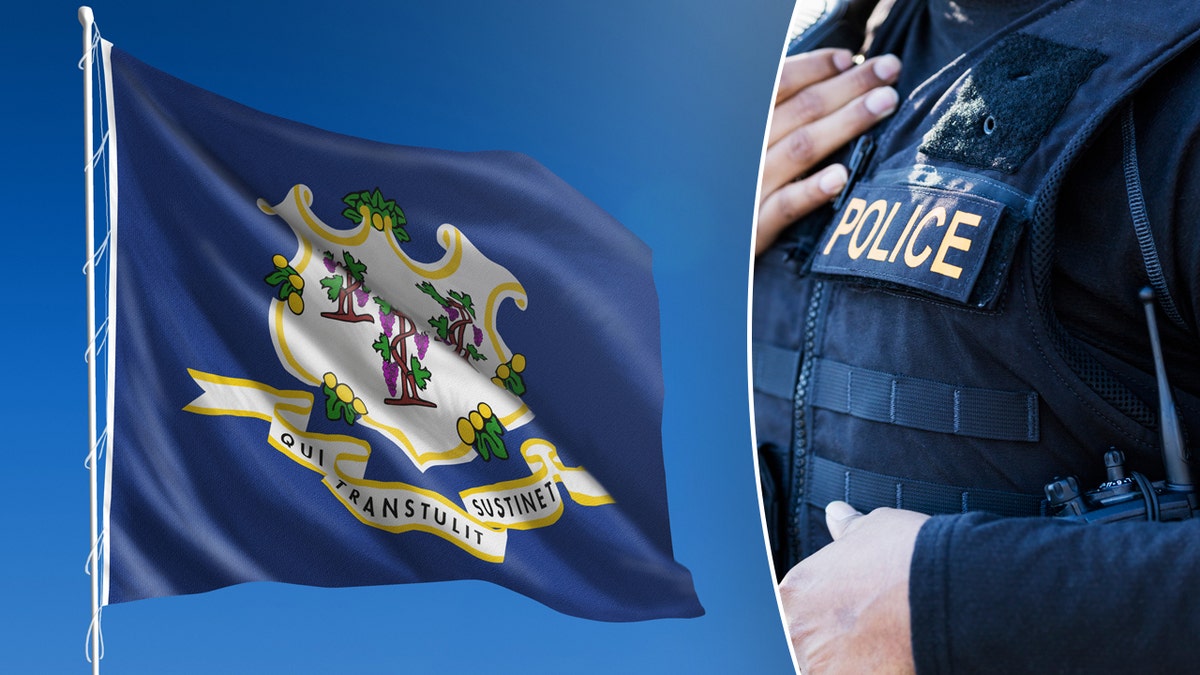Residents of neighborhood in Hartford, Connecticut, turn to armed group to defend against violent crime/.
The ‘Self-Defense Brigade’ is made up of around 40 armed citizens who patrol the streets wearing body cameras.
Sometimes, certain laws in a state can make you wonder whether they are fact or fiction.
Some rather bizarre "laws" are nothing more than a myth, where others are clearly defined.
Like every other state, Connecticut has some strange laws.

If you look through any state's laws, including Connecticut's, you're sure to find some confusing ones. (iStock)
One quite famous strange "law" of Connecticut regards pickles.
Many online articles discuss a law in Connecticut stating that in order for a pickle to be considered a pickle, it must bounce.
The subject was investigated by many sources, including The Connecticut State Library and NBC CT.
Both point to the same article written in the Hartford Courant in 1948 as the source of the myth, where two pickle packers found themselves in legal trouble for selling pickles "unfit for human consumption."

One strange Connecticut "law," which is actually a myth, provides that pickles must bounce. (iStock)
When the "putrid" pickles were being tested, the Food and Drug Commissioner of the time, Frederick Holbrook, stated that a good test to tell whether a pickle was good or not was to "drop it one foot" and see if it bounced.
A bouncy pickle makes a good pickle.
When these particular pickles were dropped, they did not bounce and instead splattered, though the test was not the reason for the legal trouble. There were many laboratory tests also conducted.
Even though the pickle law is fictional, there are other strange laws in the state that are real.
Read about a few below.
STRANGE LAWS IN NEW MEXICO, INCLUDING TROUBLE FOR TRIPPING A HORSE
1. Restrictions on silly string
Minors aren't trusted with silly string in Meriden, Connecticut.
Silly string is often used in a celebratory fashion, but it can quickly cause a big mess.
In the city of Meriden, silly string cannot be sold to minors unless they are with a parent or legal guardian.
The specifics are laid out in Chapter 175 of Meriden law.

Children of Meriden, Connecticut are not allowed to be sold silly string without a parent. (iStock)
If a store is selling silly string or products similar to it, it must be locked up, held behind the sales counter or "in some other manner which restricts public access to such products."
The fine for breaking this law is $99.
2. Don't release balloons
There are many occasions where balloons are purposefully released into the air. Many states have cracked down on this practice and have created laws limiting the release of balloons, or banning the act completely.
To date, there are ten states, including Connecticut, that have some sort of law regarding the release of balloons into the air, according to CBS News. Rhode Island, Virginia, Maryland and Delaware are others.
Connecticut General Statute Section 26-25C details this law.
WEIRD LAWS IN MASSACHUSETTS INCLUDING A $20 FINE, POSSIBLE JAIL TIME FOR FRIGHTENING A PIGEON
The law prevents the release of ten or more "helium or lighter-than-air gas balloons" into the atmosphere during a 24-hour period.
Though the release of balloons may seem harmless, and a law against it could seem rather strange, celebratory balloons could pose a danger to wildlife.
Animals could mistake balloons for food, causing harm or, in certain cases, death, the U.S. Fish and Wildlife Service notes on its website.
The strings of balloons can also be dangerous for animals, as they could get tangled up in them, the federal agency additionally notes.

Ten or more balloons may not be released into the air in Connecticut. (iStock)
3. Limitations on arcade games
Did you know that Rocky Hill, Connecticut, has a law involving arcade games?
The details are laid out in Chapter 81 of the town's legislation.
Described in the law is the regulation that no "more than four mechanical amusement devices" are allowed.
As part of the law, individuals, partnerships, corporations, clubs or associations can not "have in any place within a permanent structure open to the general public or occupied by any club or association any mechanical amusement device without first having obtained a license therefor."
CLICK HERE TO GET THE FOX NEWS APP
"Notwithstanding the provisions of Subsection A, no person shall have in any place within a permanent structure open to the general public more than four mechanical amusement devices," the law also states.
Those who break this law face a fine of $25 for each day of violation.
South Carolina is another state that has a strange arcade law. Its law is specific to pinball. Those under the age of 18 are not allowed to play the popular game.









































